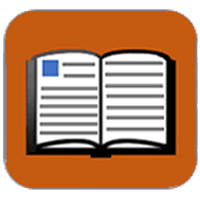Fire Communication & Education
View story map.
More than half of wildfires burn in rangelands.
View article.
Study design, interview discussions, and field observations from both case studies reveal the importance of nuanced and responsive approaches for the use of 3D visualizations, with an emphasis on the implementation of protocols that ensure the risk of harm to the intended audience is minimal. We share five considerations for use of visualizations as communication tools with public and professional audiences, expanding existing research into post-fire spaces: (1) determine whether the use of visualizations will truly benefit users; (2) connect users to visualizations by incorporating local values; (3) provide context around model uncertainty; (4) design and share visualizations in ways that meet the needs of the user; (5) be cognizant of the emotional impacts that sharing wildfire visualizations can have.
Webinar recording (50:31).
Led by Hawai’i Wildfire Management Organization (www.hawaiiwildfire.org), this webinar equips you with essential strategies to prepare, respond, and stay safe in the face of wildfires. From creating defensible spaces to crafting evacuation plans, we’ll cover it all. Don’t wait until it’s too late – arm yourself with knowledge and confidence. Register now and take the first step toward wildfire readiness!
Webinar recording (1:04:22).
Webinar recording.
From large-scale wildfires to smaller incidents connected to complex social issues; crises take many forms and present unique communications challenges. Panelists will discuss how conservation organizations and fire practitioners can prepare for hard times and provide suggestions for how to proceed if and when they happen.
Following a moderated panel discussion, there will be time for audience Q/A.
Panelists:
Brigette Coleman-Williams is the director of marketing and communications for The Nature Conservancy in Arkansas and previously worked in communications for the American Red Cross.
Jenifer Bunty is a public affairs specialist for the National Forests in North Carolina Service Disaster Assistance Recovery Team.
Katie Sauerbrey is the fire program director for The Nature Conservancy in Oregon
Parker Titus is the fire program manager for The Nature Conservancy in Colorado.
Webinar recording.
Communication professionals and fire practitioners with significant media experience discuss challenges and success in communicating about fire through media outlets. Panelists share their experiences and provide suggestions for those looking to begin or improve communication through various forms of media. Following a moderated panel discussion, there will be time for audience Q/A.
Panelists:
Lorena Williams is a Public Affairs Specialist and Public Information Officer for the San Juan National Forest in Colorado.
Bob Crimian is a program manager for COMPASS, a science communication organization that champions, connects, and supports diverse scientist leaders to improve the well-being of people and nature.
Eytan Krasilovsky is the deputy director for the Forest Stewards Guild based out of the Southwest office
View webinar recording.
Helping landowners and agencies engage in collaborative planning. Instructor: Katie Wollstein.
Webinar recording.
Land manager and public land partner-focused panel webinar dedicated to examining selective science use, some of the impacts to land management, and methods for reducing misinformation in collaborative forest management. The panel provides short talks on their perspectives, and address questions and issues provided by attendees. Discussion and Q&A during this session will facilitate information exchange between all attendees.
View article.
To advance transformative solutions to this complex fire challenge, we propose four principles for conducting transdisciplinary fire research: (1) embrace complexity, (2) promote diverse ways of knowing fire, (3) foster transformative learning, and (4) practice problem-centered research. These principles emerged from our experience as a group of early-career researchers who are embedded within and motivated by today’s complex fire challenge within British Columbia (BC), Canada. In this forum piece, we first describe the four principles and then apply the principles to two case studies: (1) BC, a settler-colonial context experiencing increased size, severity, and impacts of wildfires, and (2) our ECR discussion group, a space of collective learning and transformation. In doing so, we present a unique contribution that builds on existing efforts to develop more holistic fire research frameworks and demonstrates how application of these principles can promote transdisciplinary research and transformation towards coexistence with fire, from local to global scales.
View storymap.
Public and private landowners have come together to lay out a path for recovery. Major partners in the region are uniting behind a groundbreaking cross-jurisdictional approach to restore resilient forests in Oregon’s Klamath and Lake counties. The resulting strategy has become a national blueprint for post-wildfire recovery.




